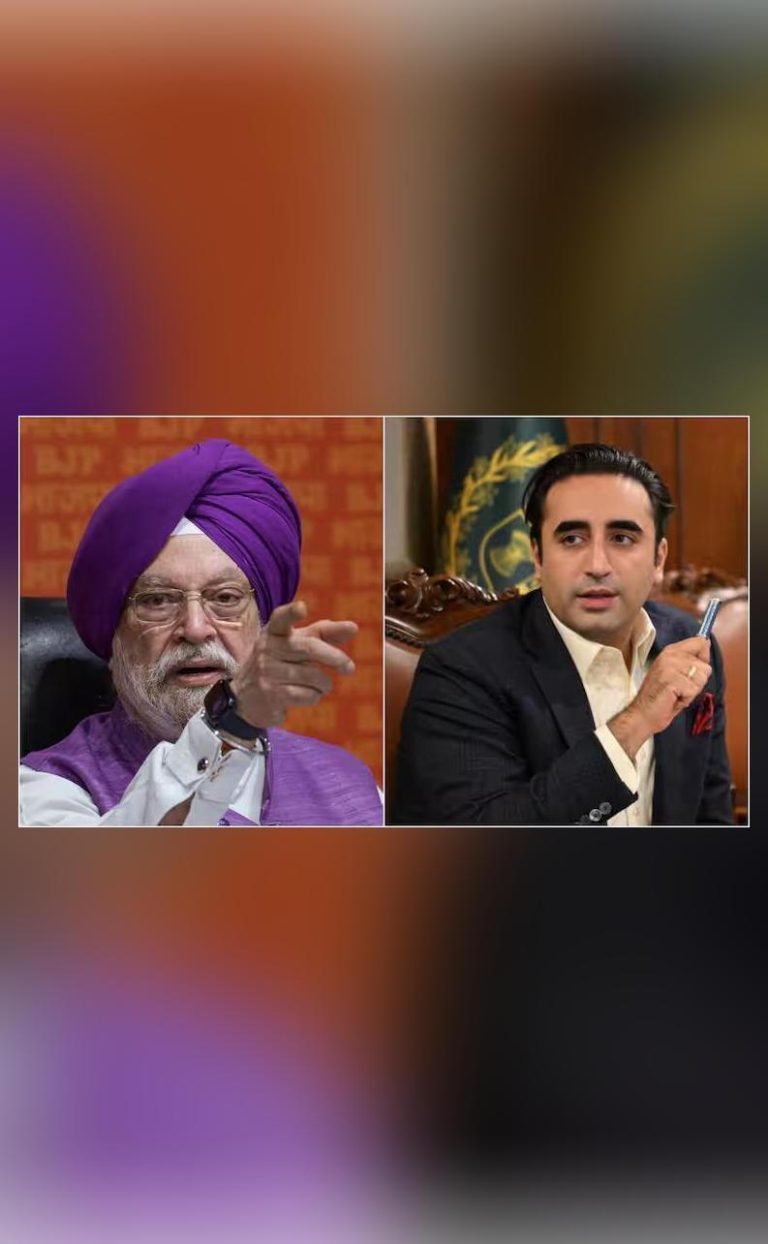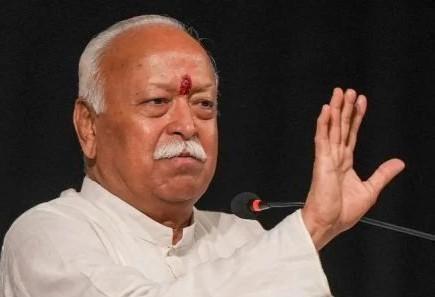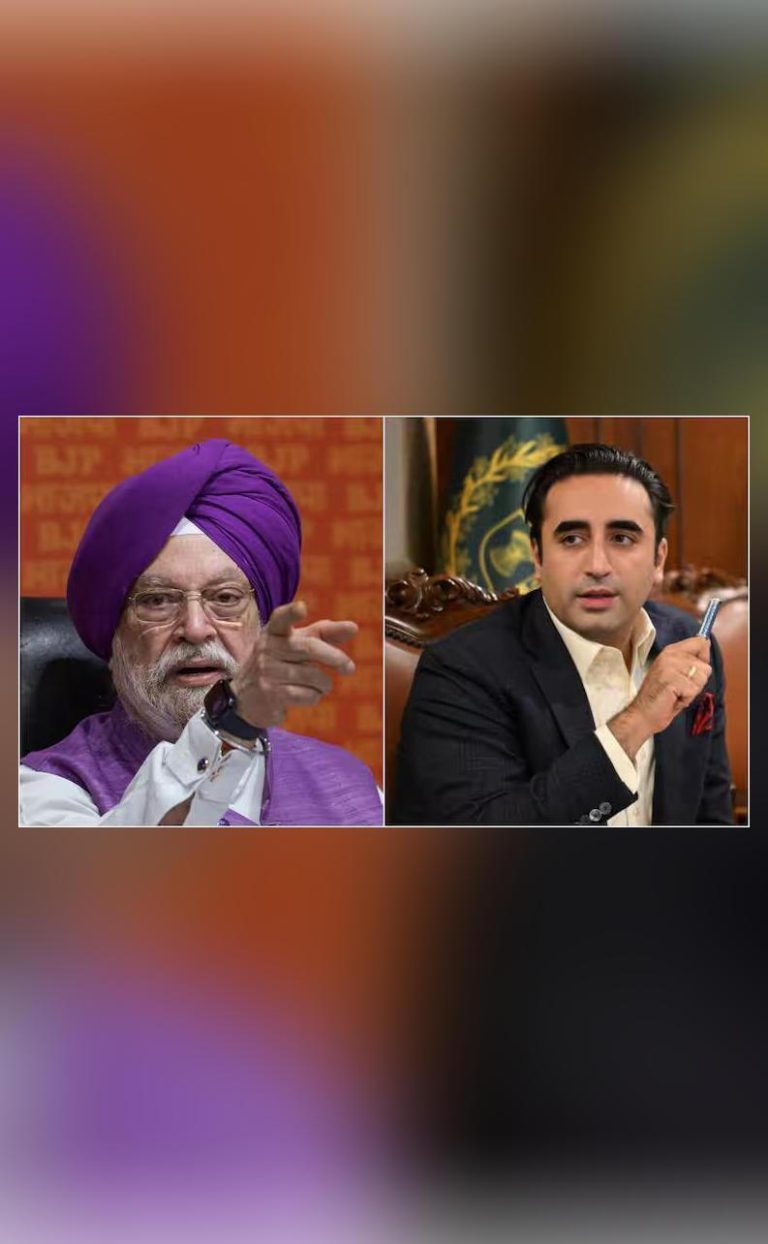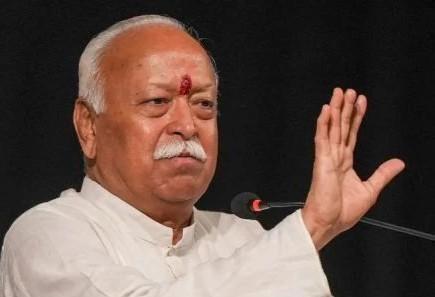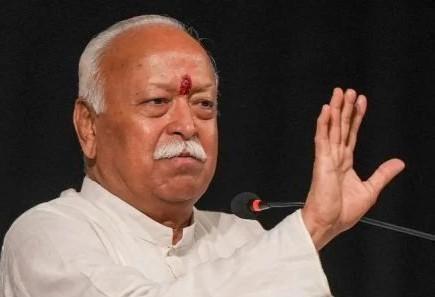
If Someone Turns to Evil, Then We’ll Teach Lesson: Bhagwat on J&K Attack
In the aftermath of the recent terror attack in Pahalgam, Jammu and Kashmir, RSS Chief Mohan Bhagwat has made a bold statement that has left many wondering about the implications. In a video message, Bhagwat said that non-violence is India’s religion, but so is teaching a lesson to “oppressors and hooligans”. His statement has sparked a debate on the nature of Indian society and its approach to dealing with evil.
Bhagwat’s statement is a stark reminder of the harsh realities that India faces, particularly in the context of Kashmir. For years, the region has been plagued by terrorism and violence, with innocent civilians bearing the brunt of the conflict. The recent attack in Pahalgam, which left several people injured, is just the latest example of the senseless violence that has become a hallmark of the region.
In his message, Bhagwat emphasized the importance of non-violence, saying that India’s religion is rooted in the principles of ahimsa or non-violence. However, he also made it clear that the country cannot simply turn a blind eye to evil. “We never harm or disrespect our neighbours,” he said, “but if someone is bent on being evil, what is the cure? The king’s duty is to protect the people, and he will do his duty.”
Bhagwat’s statement has been interpreted by many as a call to action, a reminder that the government has a responsibility to protect its citizens from harm. In the context of Kashmir, this means taking a tough stance against terrorism and ensuring that those responsible for the violence are brought to justice.
However, Bhagwat’s statement has also been criticized by some who argue that it is too harsh and may not be in line with India’s values of non-violence and tolerance. Some have pointed out that the use of violence as a means of teaching a lesson can often lead to more harm and suffering, rather than a solution to the problem.
Despite these criticisms, Bhagwat’s statement is a reflection of the frustration and anger that many Indians feel in the face of senseless violence. For years, the country has been plagued by terrorism, and the recent attacks in Kashmir have only added to the sense of insecurity and fear.
In addition to the political implications of Bhagwat’s statement, it also raises important questions about the nature of Indian society and its approach to dealing with evil. Is it possible to balance the need for protection and security with the need to maintain a sense of non-violence and tolerance? Or are these two values fundamentally at odds with each other?
One possible answer to these questions lies in the concept of “dynamic non-violence”. This approach recognizes that non-violence is not a fixed or static concept, but rather a dynamic and evolving philosophy that must be adapted to different situations and contexts. In the context of Kashmir, for example, dynamic non-violence might involve using non-violent means to resist terrorism and protect civilians, while also working to address the root causes of the conflict and promote peace and reconciliation.
Another possible answer lies in the importance of education and social change. By promoting values of non-violence and tolerance, and by working to address the underlying social and economic issues that contribute to violence, India can create a more peaceful and harmonious society. This approach recognizes that violence is often a symptom of deeper social and economic problems, and that the only way to truly address these problems is to work towards a more just and equitable society.
In conclusion, Bhagwat’s statement is a complex and multifaceted issue that raises important questions about the nature of Indian society and its approach to dealing with evil. While his emphasis on the importance of teaching a lesson to “oppressors and hooligans” may be seen as harsh by some, it also reflects a deep frustration and anger in the face of senseless violence. Ultimately, the key to addressing this issue lies in finding a balance between the need for protection and security, and the need to maintain a sense of non-violence and tolerance. By promoting values of dynamic non-violence and social change, India can create a more peaceful and harmonious society that is better equipped to deal with the challenges of the 21st century.
Source: https://youtu.be/SpAKVWl5wII
